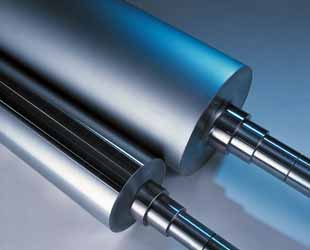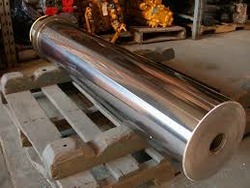The cornerstone of our success.

ULTRA Hard Chrome offers solutions.
We offer solutions to your wear and corrosion problems through the use of our standard, duplex, microcracked, multi-layer and spot chrome processes. Our deposits are optimized for hardness, brightness, and corrosion resistance providing excellent wear and antigalling characteristics. Our eight hard chromium plating tanks can handle a variety of shapes and sizes.
Our maximum capabilities are:
- 48″ diameter (up to 60″ dia if the face is under 48″)
- 280″ OAL
- 20,000 lbs.
Substrate Considerations

- Carbon Steels (hardened and unhardened)
- Cast Irons
- Stainless Steels
- “Tool” Steels
- “Aircraft” Steels
- Non-Ferrous materials, eg. copper, brass, aluminum
Surface pretreatment ensures a clean, oxidefree, reactive surface for maximum plating bond strength. This can be accomplished by:
- Grinding
- Polishing
- Blasting
Substrate Defects Include:
- Pits, porosity, inclusions
- Laminations
- Gouges, knicks
- Tool marks, chatter, spirals
Chrome Plating will magnify existing substrate defects. Therefore, these must be repaired prior to plating. Common repairs include:
- Grinding
- TIG or Dot Welding
- Sulfamate Nickel Overplate
Hydrogen Relief
Our 6′ x 25′ computer controlled oven allows us to take care of all hydrogen stress relief baking requirements.During plating, copious amounts of hydrogen are released at the cathode (part being plated). As much as 85% of the current applied during chrome plating goes to form hydrogen. Some of the hydrogen is occluded in the basis metal during plating, setting up stresses that can cause hardened metal to crack.
In general, metal with hardness greater than 40 Rc should be relieved if the deposit is more than .001″ thick.
If the basis metal is not hardened by heat treatment, its softness does not permit stresses to build. In essence, such metal is self relieving.

